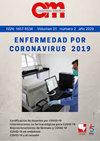加强卫生专业人员之间的合作:线索和挑战
IF 1.3
4区 医学
Q3 MEDICINE, GENERAL & INTERNAL
引用次数: 8
摘要
背景:学者们最近开始更多地关注全科医生和专科医生之间的跨专业关系的潜力,通过考虑对处方实践的影响来改善结果。然而,还需要更多的实证研究。目的:探讨跨专业网络因素对全科医生处方行为的影响。方法:对糖尿病综合护理项目进行定性研究。数据是通过半结构化访谈从16个医疗机构和一家医院糖尿病诊所收集的,使用了方便的全科医生、执业护士、糖尿病护士专家和内分泌学家的样本。进行概念映射以确定潜在网络的因素和对患者结果的影响。结果:从概念图中出现了四个主题及其概念。这表明需要建立有效的沟通渠道,以便及时分享糖尿病护理方面的经验和知识。沟通、协作和协调是影响初级和二级保健处方行为的关键因素。结论:概念映射允许理解可能解释卫生专业人员之间的联系如何在初级和二级保健界面上改善患者预后的因素。本文章由计算机程序翻译,如有差异,请以英文原文为准。
Increasing collaboration between health professionals: Clues and challenges
Background:
Scholars have recently started to pay more attention in the potential of the inter-professional relationship between general practitioners and specialists to improve outcomes, through consideration given to the effect on prescribing practices. However, more empirical research is needed.
Objective:
To explore inter-professional network factors that may explain effects on General Practitioners prescription behaviours.
Methods:
A qualitative study was conducted in an integrated diabetes care program. Data was collected through semi-structured interviews from 16 health practices and a hospital diabetes clinic, using a convenience sample of general practitioners, practices nurses, diabetes nurse specialists and endocrinologists. A conceptual mapping was performed to identify factors underlying networks and effects on patient outcomes.
Results:
Four themes with their concepts emerged from the conceptual map. These demonstrated the need for building effective channels of communication to share experience and knowledge timely in diabetes care. Communication, collaboration and coordination are critical factors to influence prescription behaviours within primary and secondary care.
Conclusions:
conceptual mapping allowed understanding factors that might explain how links between health professionals can improve patient outcomes at the primary and secondary care interface.
求助全文
通过发布文献求助,成功后即可免费获取论文全文。
去求助
来源期刊

Colombia Medica
MEDICINE, GENERAL & INTERNAL-
CiteScore
2.00
自引率
0.00%
发文量
11
审稿时长
>12 weeks
期刊介绍:
Colombia Médica is an international peer-reviewed medical journal that will consider any original contribution that advances or illuminates medical science or practice, or that educates to the journal''s’ readers.The journal is owned by a non-profit organization, Universidad del Valle, and serves the scientific community strictly following the International Committee of Medical Journal Editors (ICMJE) and the World Association of Medical Editors (WAME) recommendations of policies on publication ethics policies for medical journals.
Colombia Médica publishes original research articles, viewpoints and reviews in all areas of medical science and clinical practice. However, Colombia Médica gives the highest priority to papers on general and internal medicine, public health and primary health care.
 求助内容:
求助内容: 应助结果提醒方式:
应助结果提醒方式:


